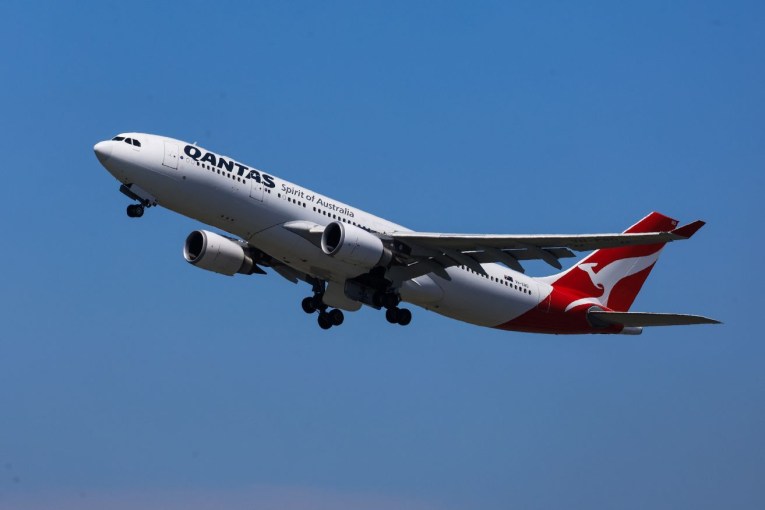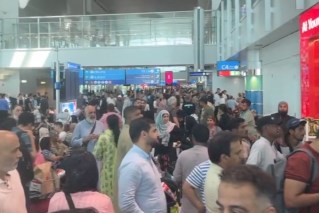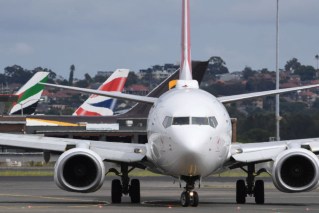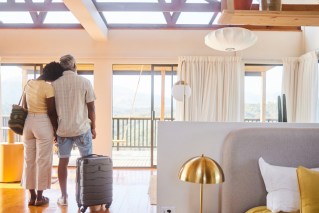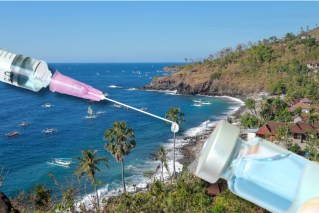Trading places: Sweden

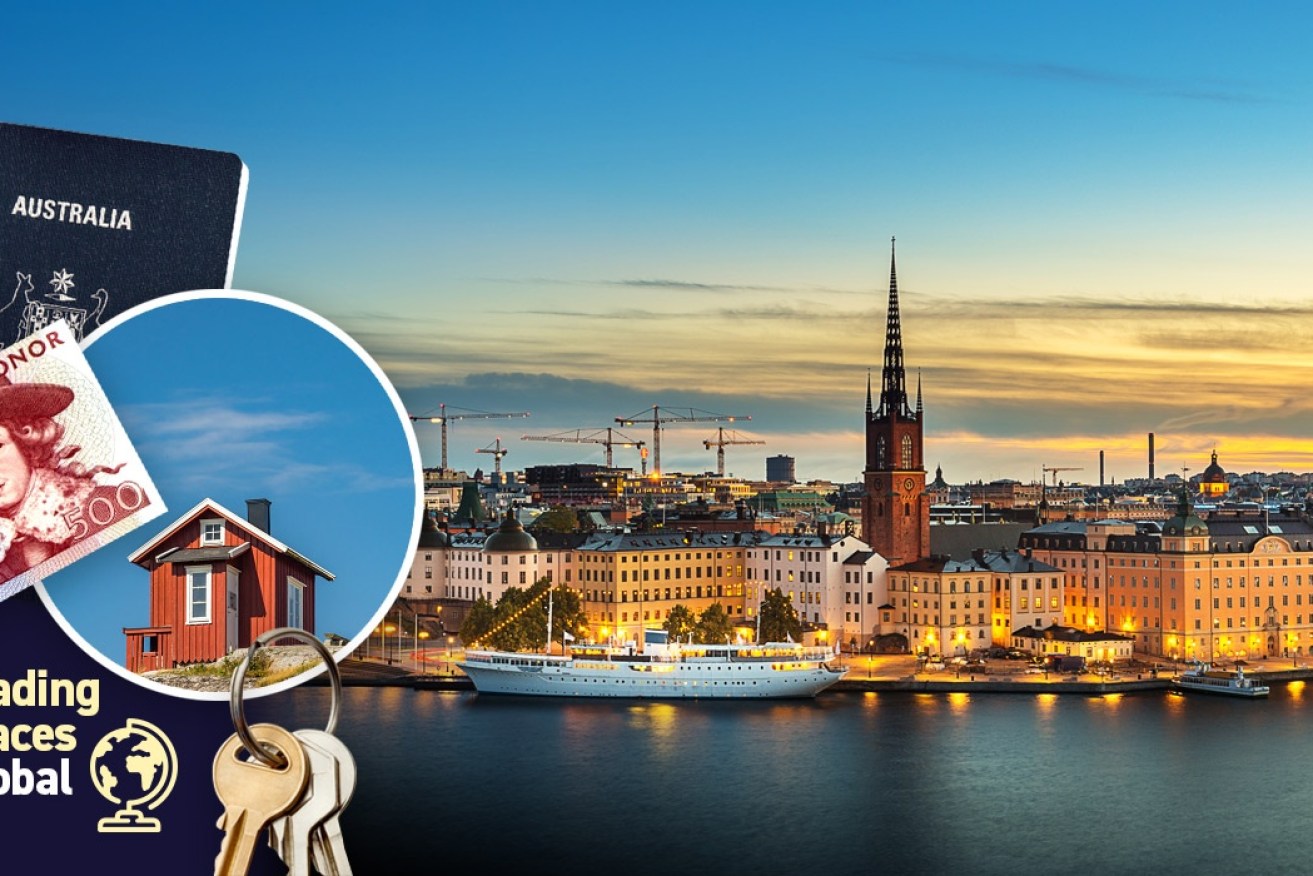
If you turned on a radio in the late 1990s you’re likely familiar with the work of singer-songwriter Tania Doko, best known as the frontwoman of Melbourne pop duo Bachelor Girl.
In 1998 Ms Doko was riding a wave of local and international success. Bachelor Girl’s debut single Buses and Trains was a top-10 hit in Australia and the earworm also landed in the top 30 of Sweden’s charts – an unexpected achievement that would ultimately prove life-changing for Ms Doko.
Two decades after Buses and Trains propelled Bachelor Girl into Australia and Sweden’s pop music consciousness the 44-year-old songwriter now lives in Stockholm with her Swedish husband and son.

Tania Doko with Bachelor Girl bandmate James Roche in Sweden. Photo: Supplied
“I discovered Sweden on a promo tour in 1999 when my single was quite the hit over here and fell in love with Stockholm instantly,” Ms Doko says.
“Strangely I had a sense that I would actually move here. I love this city, the community, the beauty, and the people. No one’s perfect but they are very lovely.”
Sweden is the third country in The New Daily’s five-part special series, Trading Places Global. From Kuala Lumpur to Paris, The New Daily takes you around the globe to look at what life’s like for the more than one million Australians living, working and retiring abroad.
Culture and lifestyle

Stockholm, Sweden. Photo: AAP
After putting out multiple albums with Bachelor Girl and two solo records Ms Doko decided to turn her creative focus to songwriting for other artists. She “rediscovered” Sweden on an overseas jaunt in 2009, decided to leave Australia and applied for a visa to ply her trade as a songwriter in Stockholm in 2011.
Australians travelling to Sweden for up to 90 days don’t need to apply for a visa, but those intending to live, study, or work must obtain a residency permit before entering the country. Applications are overseen by the Swedish Migration Agency. 
A year after arriving in Sweden, Ms Doko met future husband Daniel Thorgren and “that sealed the deal”. The couple now share a four-year-old son, Leo, who speaks Swedish with his dad and English with his mum.
“It does sound like it was meant to be,” Ms Doko muses, reflecting on her journey from Melbourne pop starlet to Stockholm songwriter.
“I feel very at home here and I think Australians and Swedes get along great.”
Adapting to the long, cold Scandinavian winters – when it gets dark by 3pm in the afternoon – has been a challenge, as was leaving behind Melbourne’s renowned live music scene.
“I’m craving coming back home and getting in amongst that,” Ms Doko says.
“The Swedish live music scene is OK, but because they don’t have the best weather people aren’t that inspired to go out.
“In summer, though, the Swedes just go nuts for everything.”
Healthcare

Södermalm – a small island district of Stockholm. Photo: AAP
Healthcare fees in Sweden are nominal and EU/EFTA citizens, registered workers and permanent residents can access the same entitlements as Swedes.
Sweden is also one of the 11 countries with which Australia has a reciprocal healthcare agreement. This means Australians have access to a limited range of “medically necessary care that can’t wait till you get home” in the Swedish public health system for a small fee. Crucially, the agreement doesn’t cover daily fees for staying in a hospital, so travel insurance is still a must.
As a resident, Ms Doko describes Sweden as “the best country in the world” to have a child and raise a family, thanks to its world-class universal healthcare system and generous family policies.
Money matters
According to government-funded expat organisation Advance, overseas job opportunities are the biggest catalyst for Australians making an international move.
“To put it in context, there’s about 5 per cent of our population overseas at any one time, and around 800,000 Australians working across the world in key cities and key democracies,” Advance chief executive Serafina Maiorano says.

Stockholm’s old town ‘Gamla stan’ dates back to the 13th century. Photo: AAP
Expatriates are “people that are game changers, creating incredible impact in the world and really going for it”, Ms Maiorano says. They form a “smart grid of global talent”, furthering Australia’s international standing through a network of “soft power”.
“Australia’s not just about geography, it’s about its people. Wherever those people are they can give back to the country.”
Sweden is often lauded for the success of its progressive social policies, something Ms Doko can attest to as a busy working songwriter and the mother of a young child.
“That system has been extraordinary. It’s very conducive to both parents going back to work within a year,” she says.
“Everyone’s equal and women don’t fall out of the workforce.”
Her son attends daycare, which she describes as “ridiculously cheap”, comparing a month’s worth of fees to the cost of just one day at a daycare centre in Sydney. When it comes to schooling “everything’s free, they don’t do private”, and students are “fed and watered”.
“The taxes are high, but that’s what they pay for. Swedes spend it well so that every Swedish citizen knows they have those fundamental things taken care of,” she says.
“I feel very fortunate having this life in Sweden – being an artist and not feeling guilty because I know that my kid is happy and having fun and learning.”
Ms Doko will return to Australia for a string of Bachelor Girl performances with John Farnham and Icehouse in November, December and January.
What to know before you go
- Tax: When leaving Australia for an extended period of time it’s crucial to understand whether or not you’ll be remaining an Australian resident for tax purposes. For instance, if you’re living overseas but are considered an Australian resident for tax purposes the ATO will tax you on your worldwide income, which you will need to declare at the end of each financial year. Check out the ATO’s online guides covering key topics for expats including working out your residency status for tax purposes, taxable Australian property, and changing residency.
- Super: Expats can make contributions to their superannuation fund while overseas, and apply for release of their savings once eligible.
It’s crucial to note that released funds will be taxed twice for residents of countries such as Italy that have a Double Tax Agreement with Australia. Self-managed super funds (SMSFs) are more complicated, and are generally not considered a good option for expats. - Age pension: Australians are generally eligible to continue receiving the pension when they move overseas, though the process can be complex. Centrelink provides a breakdown of pension rates for those living outside Australia
- Student debt: If you’re a student or former student with a HECS-HELP or TSL debt living overseas you’ll have to declare your worldwide income to the ATO or lodge a non-lodgement advice, even if you’re considered a non-resident for tax purposes each year.
- Visas: Beware of visa scams and unscrupulous operators. Use a registered migration agent where possible.
- Safety: Visit the Australian government’s SmartTraveller website for more information on how to protect yourself while living and working abroad.
